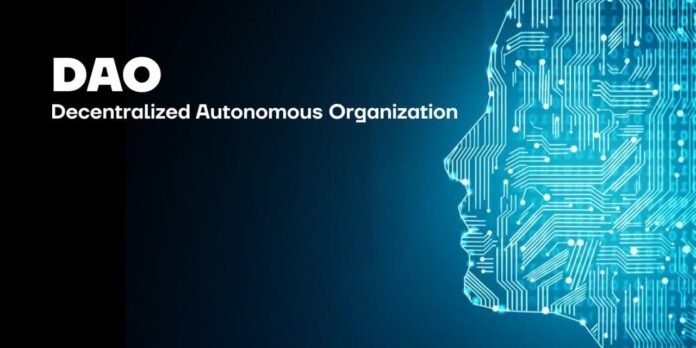A decentralised autonomous organisation (DAO) is a blockchain-based programme that provides users with a built-in paradigm for collaborative code management. DAOs became part of the crypto world recently and now it is a unique and irreplaceable part of the market. Businesses and organisations may be administered online, entirely decentralised, and with unparalleled transparency with it.
Key Points:
- DAOs are controlled by a set of rules defined in code and enforced by a network of computers running a common programme, rather than by a small number of people.
- DAOs are designed to resemble a corporate structure in which rules and regulations are created with open-source code and enforced through smart contracts.
- To be a member of a DAO, users must first purchase the DAO’s cryptocurrency.
- Users who own the asset have the option to vote on ideas and changes proportionally to their ownership.
- Some notable examples of DAO ecosystem are Dash, The Dao, Augur and Uniswap.
Why were they developed?
- To put decision-making authority in the hands of an automated system and a crowdsourced process, the DAO’s creators hoped to minimise human mistake and manipulation of investor funds.
How DAO are useful:
- Starting a business with someone that includes money and finance necessitates a high level of confidence in the individuals you’re working with. However, trusting with someone whom you’ve always only interacted on the internet is challenging. You don’t have to trust anybody else in the group with DAOs; all you have to trust is the DAO’s code, which is completely visible and verifiable by everyone.
How does it work?
- A DAO’s smart contract is DAO’s backbone. The contract establishes the organization’s norms and safeguards the group’s funds. No one may modify the rules after the contract is live except by a vote.
- It will fail if someone attempts to do anything that isn’t covered by the code’s rules and logic. Because the treasury is also specified by the smart contract, no one may spend the money without such permission of the organisation.
- In DAOs, this removes the need for a central authority. Instead, the group makes choices together, and payments are automatically allowed when votes are passed.
Critics, on the other hand, believe that a totally decentralised and independent organisation does not exist. The governance rules specified inside the smart contract and blockchain protocol will still be a point of centralization, even if the network is geographically dispersed. The dilemma of how to improve the code, if and when required, serve as a centralised point of contact due to dependency on a group of specialists who understands code’s techno-legal complexity.




